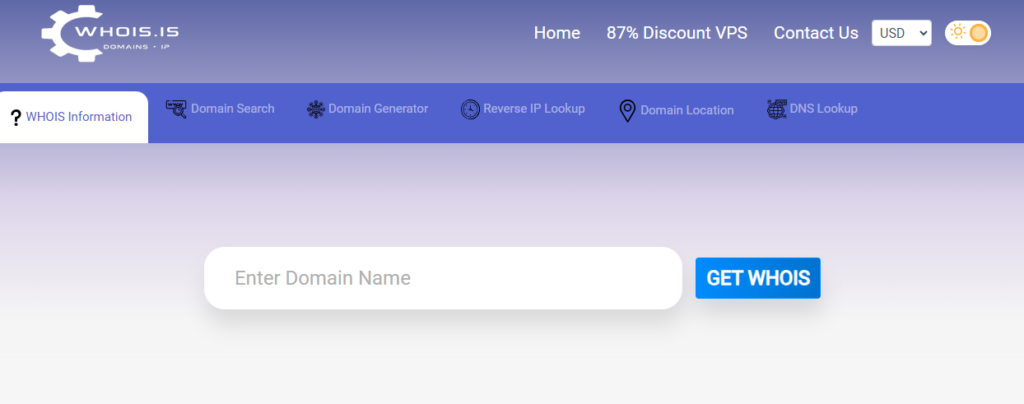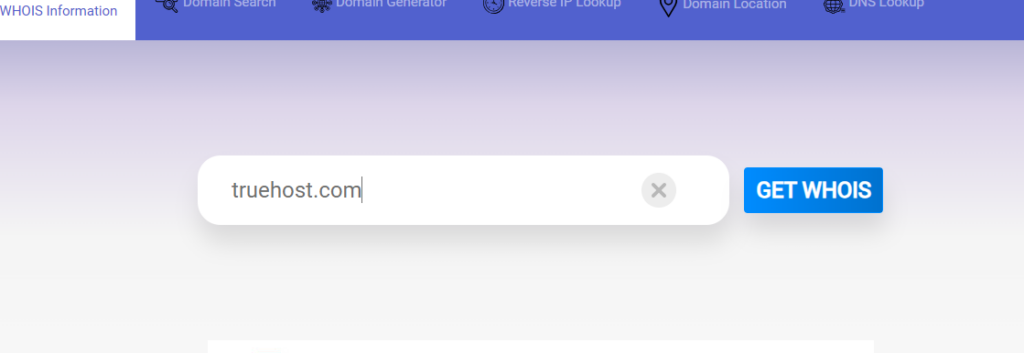Are you curious to know who owns a particular domain name? Whether you’re a website owner looking to connect with other businesses or an individual trying to investigate a suspicious website, unraveling the mystery of a domain name’s owner can be a challenging task. But fear not! In this article, we will guide you through the process of looking up the owner of a domain name and uncovering the information you seek.
With the ever-expanding digital landscape, domain names are registered daily, making it crucial to have efficient methods to identify the individuals or organizations behind them. By utilizing various online tools and techniques, you can uncover valuable insights about a domain’s owner, such as their contact details, registration history, and even their business affiliations.
We understand the importance of finding accurate and reliable information, so we’ll explore the most trusted methods to lookup domain name owners, ensuring you have the knowledge and tools necessary to unveil the secrets behind domain ownership.
Why would you want to lookup the owner of a domain name?
Before we dive into the methods of looking up domain name owners, let’s first understand why you might want to do this in the first place. There are several reasons why someone would want to uncover the owner of a domain name.
- Establishing business connections: If you’re a website owner or a business professional, you may want to connect with other businesses within your industry. By identifying the owners of domain names related to your field, you can reach out to them and explore potential collaboration opportunities. This can be especially useful for networking, partnerships, or even acquiring new customers.
- Verifying website credibility: With the rise in online scams and fraudulent activities, it’s essential to verify the credibility of a website before engaging with it. By looking up the owner of a domain name, you can gather information that helps you assess the legitimacy of the website. This is particularly important when making online purchases or providing personal information on a website.
- Investigating suspicious activities: In some cases, you may come across a website that raises suspicion or exhibits questionable behavior. To protect yourself and others, it’s important to investigate further. By identifying the owner of the domain name, you can potentially uncover any hidden agendas or illicit activities associated with the website.
Now that we understand the reasons behind wanting to lookup the owner of a domain name, let’s explore the methods and tools that can help us accomplish this task.
Whois database: What is it and how does it work?
One of the most widely used methods for looking up domain name owners is through the Whois database.
The Whois database is a comprehensive directory that contains information about registered domain names, including the owner’s contact details, registration date, expiration date, and more.
When a domain name is registered, the domain registrar collects and stores this information in the Whois database. This database is publicly accessible, allowing anyone to perform a domain owner lookup and retrieve the relevant information.
However, it’s important to note that not all domain owners may choose to disclose their contact details publicly, leading to limited information in certain cases.
How To Lookup The Owner Of A Domain Name
Performing a domain owner lookup using the Whois database is relatively straightforward. There are several online tools and websites that provide access to this information.
Let’s walk through the steps involved in conducting a domain owner lookup using Whois.
Step 1. Choose a reliable Whois lookup tool

Start by selecting a trusted Whois lookup tool or website.
There are numerous options available, so it’s essential to choose one that provides accurate and up-to-date information.
In this example, we will be using Whois.is.
Step 2. Enter the domain name

Once you’ve selected a Whois lookup tool, enter the domain name you want to investigate.
Make sure to enter the domain name in the correct format, including the top-level domain (TLD) extension.
Step 3. Review the results

After submitting the domain name, the Whois lookup tool will retrieve and display the relevant information about the domain’s owner.
This can include their name, email address, phone number, physical address, and more. Take note of this information for further analysis or contact purposes.
It’s important to mention that while the Whois database is a valuable resource, it does have its limitations.
Some domain owners choose to protect their privacy by using domain privacy services or opting for private domain registrations.
In such cases, the Whois lookup may only display the information of the privacy service provider rather than the actual domain owner.
How to protect your domain from this
If you’re a domain owner and concerned about your personal information being publicly accessible through the Whois database, there are steps you can take to protect your privacy.
Here are a few options to consider:
1. Domain privacy services
Many domain registrars offer domain privacy services that allow you to shield your personal information from public view.
These services typically replace your contact details in the Whois database with those of the privacy service provider.
This way, anyone who performs a domain owner lookup will only see the contact information of the privacy service, preserving your privacy.
2. Private domain registration
Some domain registrars also offer private domain registration as an alternative to domain privacy services.
With private domain registration, the registrar acts as the domain owner on your behalf, keeping your personal information hidden from public view. This option provides an extra layer of anonymity and protection.
3. Proxy registration
Another method to protect your domain’s ownership details is by using a proxy registration service.
Proxy registration involves appointing a third-party entity, such as a law firm or an escrow service, as the domain owner.
This way, your personal information remains confidential, and the proxy entity acts as a shield between you and the public.
By utilizing these privacy protection measures, you can safeguard your personal information from being easily accessible through the Whois database, providing peace of mind and maintaining your online privacy.
Alternatives to Whois for domain owner lookup
While the Whois database is a popular and widely used method for looking up domain name owners, it’s not the only option available. Here are a few alternative methods you can consider:
- Domain registrar lookup: If you know the domain registrar of the domain name you’re interested in, you can directly visit their website and perform a domain owner lookup. Most reputable domain registrars provide a search tool that allows you to retrieve information about the domain’s owner.
- Reverse IP lookup: In some cases, you may not have access to the domain name itself but have the IP address associated with it. In such situations, you can use a reverse IP lookup tool to find other domain names hosted on the same IP address. By exploring these related domain names, you may uncover information about the owner.
- Online research and social media: Beyond the technical methods, conducting online research and leveraging social media platforms can provide valuable insights about the owner of a domain name. Look for any publicly available information, such as business affiliations, contact details posted on other platforms, or mentions of the domain name on social media. This method requires more manual effort but can yield useful results.
Final thoughts
Unraveling the mystery of a domain name’s owner can be an intriguing and valuable endeavor. Whether you’re seeking business connections, verifying website credibility, or investigating suspicious activities, knowing how to lookup the owner of a domain name is an essential skill in today’s digital age.
By utilizing the Whois database and other alternative methods, you can gather valuable information about a domain’s owner, enabling you to make informed decisions and navigate the online landscape with confidence. Remember to respect privacy and use the information responsibly, adhering to legal and ethical guidelines.
So, the next time you encounter a domain name that piques your curiosity, embark on the investigative journey armed with the knowledge and tools shared in this article. Uncover the hidden identities behind the websites you encounter and unravel the mystery of domain ownership.
Happy investigating!

